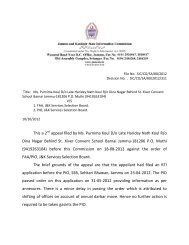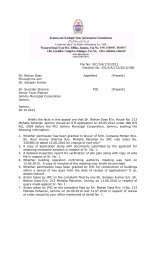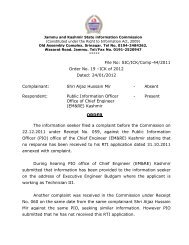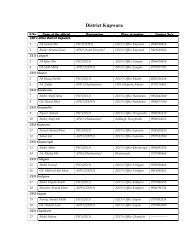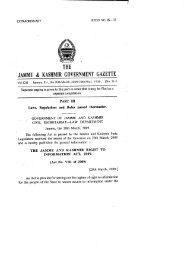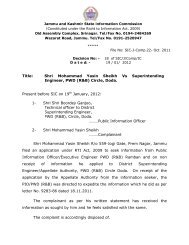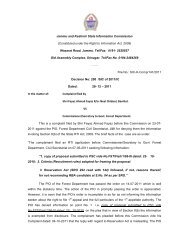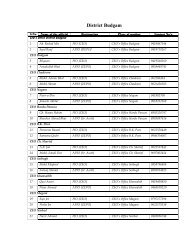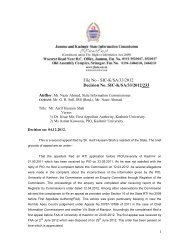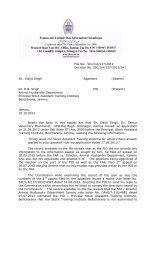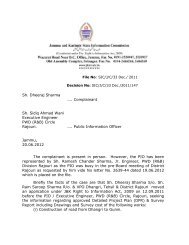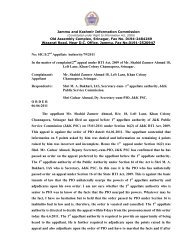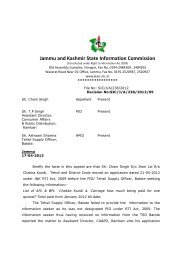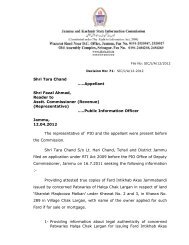SIC/RK-25/Comp/11-2011/35 - State Information Commission
SIC/RK-25/Comp/11-2011/35 - State Information Commission
SIC/RK-25/Comp/11-2011/35 - State Information Commission
You also want an ePaper? Increase the reach of your titles
YUMPU automatically turns print PDFs into web optimized ePapers that Google loves.
(5)<br />
means that no information can be sought under Central RTI Act from public authorities of<br />
J&K Government. However, with regard to the presence of Central authorities in the J&K,<br />
like defence forces etc. posted in the <strong>State</strong>, the simple and only question before the Hon’ble<br />
High Court was whether they were precluded from the operation of Central RTI Act in the<br />
<strong>State</strong>. The Hon’ble High Court has nowhere held that J&K <strong>State</strong> RTI Act is not applicable to<br />
the public authorities working in the J&K through their agents i.e number of officers holding<br />
number of positions and some among them have been designated as PIOs and FAAs. The<br />
respondent has further tried to emphasize that they do not come under the same law<br />
passed by Union Parliament and the <strong>State</strong> Legislature and if there is conflict between two<br />
laws it is central Act which will prevail. The <strong>Commission</strong> has deliberated upon this point and<br />
given due thought to this objection and have found that the PIO’s contentions are<br />
misplaced. First of all, there is broadly no conflict between the Central Act 2005 and the<br />
<strong>State</strong> RTI Act, 2009. Though it is an accepted constitutional position that in case of a clash<br />
between two laws passed by Union Parliament and the <strong>State</strong> Legislature on a particular<br />
subject which falls under the Concurrent List, it is the central law which will prevail.<br />
However, PIO is ignorant of special constitutional relationship of <strong>State</strong> of J&K with Union of<br />
India. The constitutional relationship of J&K with the Union of India is governed by Article-<br />
370 of Constitution of India. The <strong>State</strong> Legislature is functioning and deriving its powers<br />
from the Constitution of Jammu and Kashmir. It would be relevant to reproduce briefly the<br />
constitutional provisions contained in Article-370 which enumerates and prescribes the<br />
limitation for the powers of Union Parliament to make laws for <strong>State</strong> of J&K. It reads as<br />
under:-<br />
Notwithstanding anything in the constitution i.e Constitution of India,<br />
a) the provisions of article 238 shall not apply in relation to the <strong>State</strong> of Jammu<br />
and Kashmir;<br />
b) the power of Parliament to make laws for the said <strong>State</strong> shall be limited to-



